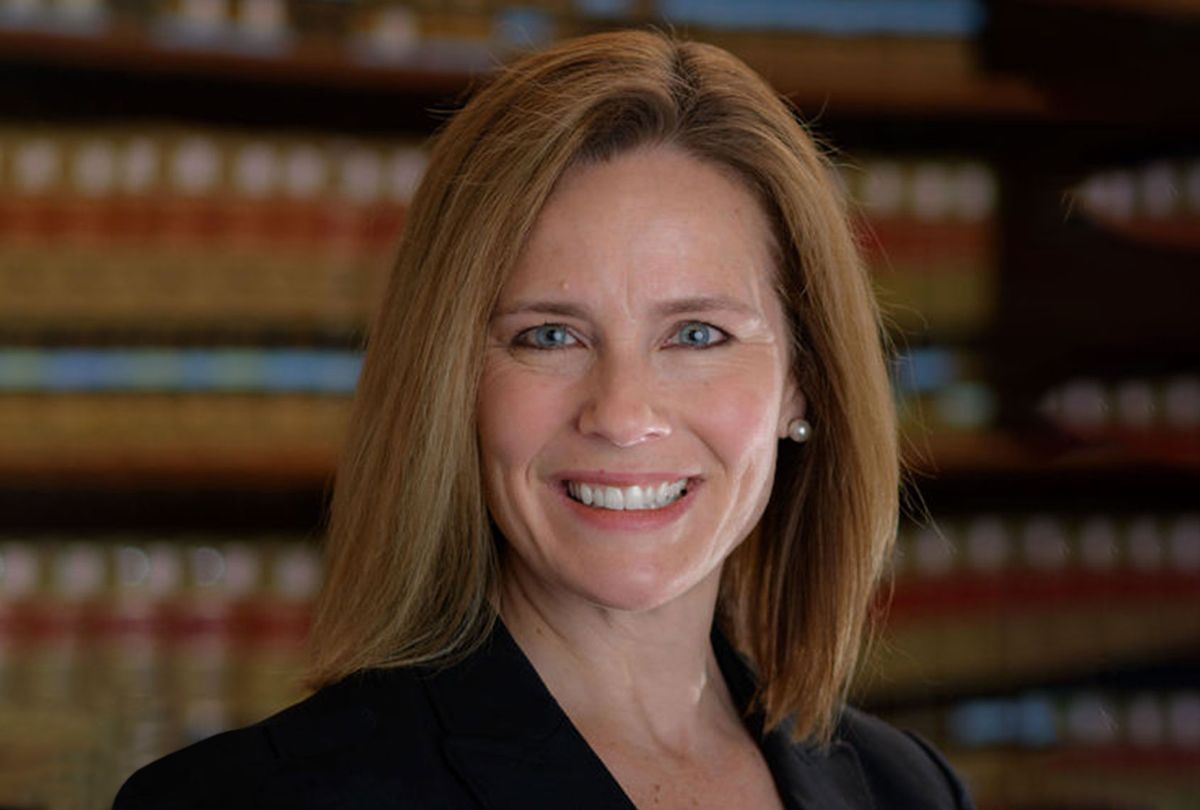Democrats sounded the alarm about the potential Supreme Court nomination of federal appeals court Judge Amy Coney Barrett over her ties to the Federalist Society and criticism of Roe v. Wade.
Despite opposing former President Barack Obama's nomination of Merrick Garland 11 months ahead of the 2016 election, Senate Majority Leader Mitch McConnell, R-Ky., has already announced that the upper chamber will vote on President Donald Trump's nominee to replace late Justice Ruth Bader Ginsburg despite her "fervent wish" to "not be replaced until a new president is installed."
Trump vowed to choose a woman to replace Ginsburg, and Barrett has emerged as the apparent front-runner.
"I'm saving her for Ginsburg," Trump said of Barrett when he tapped Brett Kavanaugh to replace former Justice Anthony Kennedy in 2018, according to Axios.
Barrett, 48, has been a cause of concern for Democrats since she her confirmation to the 7th Circuit Court of Appeals in 2017. The former clerk for the late Justice Antonin Scalia is considered to be a strict constructionist. Barrett criticized Roe v. Wade, though she acknowledged that the court would "probably" let the precedent stand.
"The fundamental element — that the woman has a right to choose abortion — will probably stand," she said during a speech at Notre Dame, according to the student newspaper. "The controversy right now is about funding. It's a question of whether abortions will be publicly or privately funded."
But Barrett later said that the court was likely to chip away at some abortion protections in 2016.
"I think the question of whether people can get very late-term abortions — you know, how many restrictions can be put on clinics — I think that would change," she said in 2016, according to The New York Times.
Democrats also raised concerns about Barrett's strict Catholicism. Sen. Dianne Feinstein, D-Calif., angered some conservatives when she pressed Barrett on her religious beliefs during her 2017 confirmation.
"You have a long history of believing that your religious beliefs should prevail," Feinstein said at the time. "The dogma lives loudly within you."
"It's never appropriate for a judge to impose that judge's personal convictions — whether they arise from faith or anywhere else — on the law." Barrett responded.
The New York Times reported that Barrett and her husband, who are parents to seven children, are members of an obscure group called People of Praise.
"Members of the group swear a lifelong oath of loyalty, called a covenant, to one another, and are assigned and are accountable to a personal adviser, called a 'head' for men and a 'handmaid' for women," the report read. "The group teaches that husbands are the heads of their wives and should take authority over the family."
According to The Times, the group describes itself as a "charismatic Christian community." The "heads and handmaids give direction on important decisions, including whom to date or marry, where to live, whether to take a job or buy a home and how to raise children."
Craig Lent, one of the group's leaders, told The Times that the group was neither "nefarious or controversial."
"We don't try to control people," he said. "And there's never any guarantee that the leader is always right. You have to discern and act in the Lord."
Barrett is also a former member of the Federalist Society, the group which bankrolled Kavanaugh's nomination and has been largely responsible for vetting conservative judges for Trump to appoint to federal courts.
If confirmed by the Senate, Barrett may possibly weigh in on the future of Obamacare after previously criticizing the Supreme Court's decision which upheld the law.
"Chief Justice Roberts pushed the Affordable Care Act beyond its plausible meaning to save the statute," she wrote in 2017.
The court is scheduled to hear arguments in a lawsuit challenging Obamacare one week following the election.
"Amy Coney Barrett meets Donald Trump's two main litmus tests," Nan Aron, the president of progressive advocacy group Alliance for Justice, told The New York Times. "She has made clear she would invalidate the A.C.A. and take health care away from millions of people and undermine a woman's reproductive freedom."
Though some associates and former classmates argued that Barrett was not ideological in her legal opinions, Politico described her frontrunner status as a potential "coup for Catholic culture warriors 25 years in the making and a high point in the right's decades-long project of reshaping the judiciary."
"She was kind of the Manchurian candidate," one former colleague at Notre Dame Law School told the outlet. "She's been groomed for this moment all the way along."
Despite Barrett's claim during her confirmation hearing that she would "never impose my own personal convictions upon the law," Democrats have raised alarm over comments she made in 2012 about being a "different kind of lawyer."
Barrett reportedly told students at Notre Dame that a "legal career is but a means to an end . . . and that end is building the Kingdom of God."



Shares